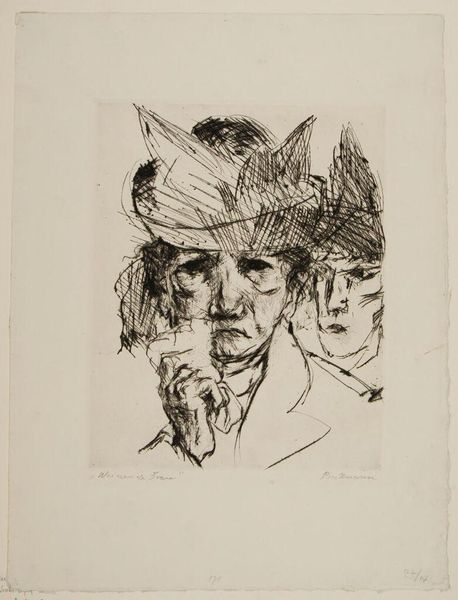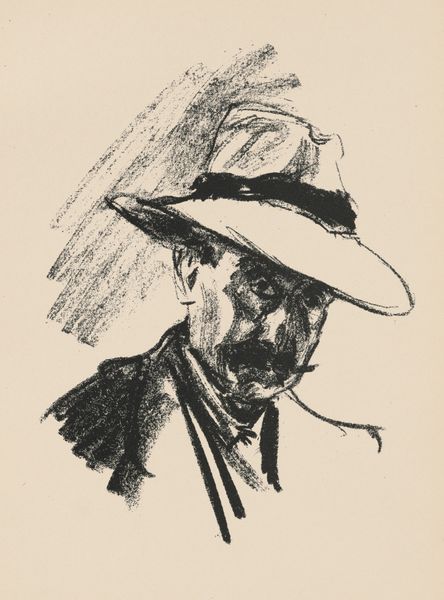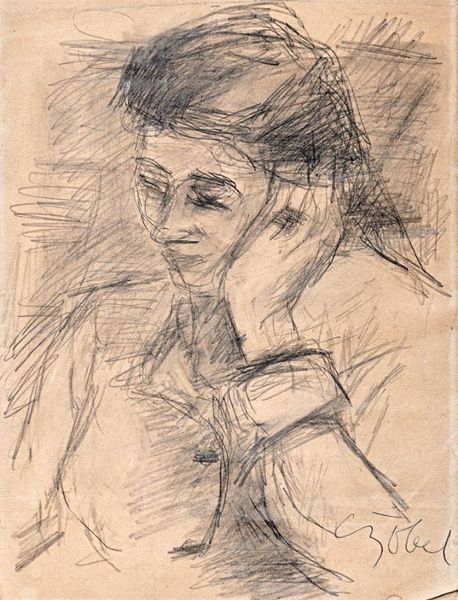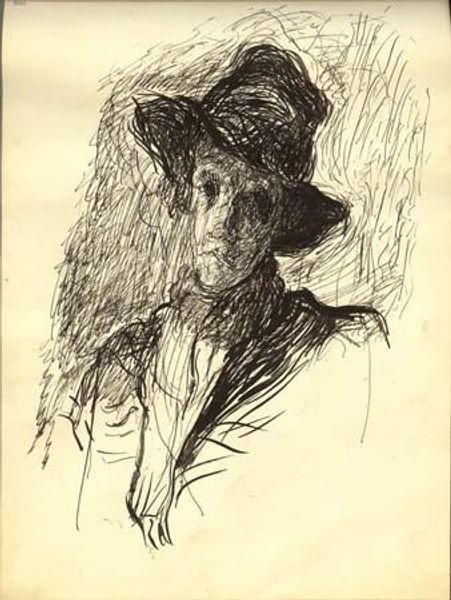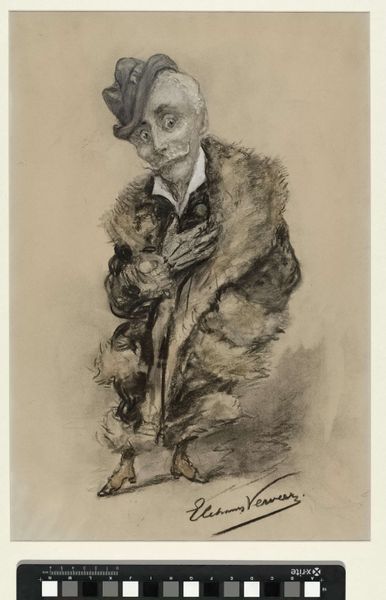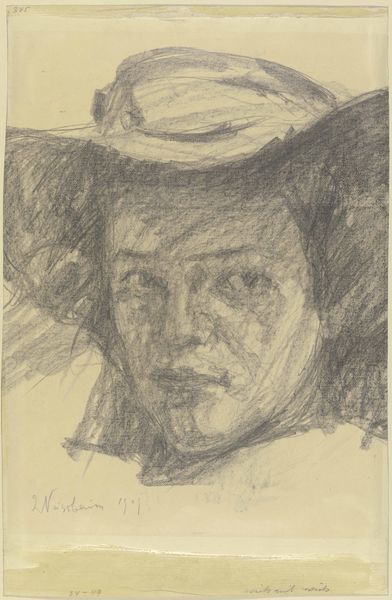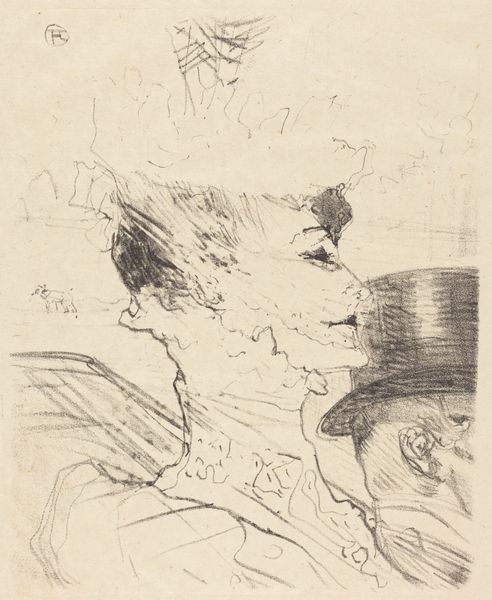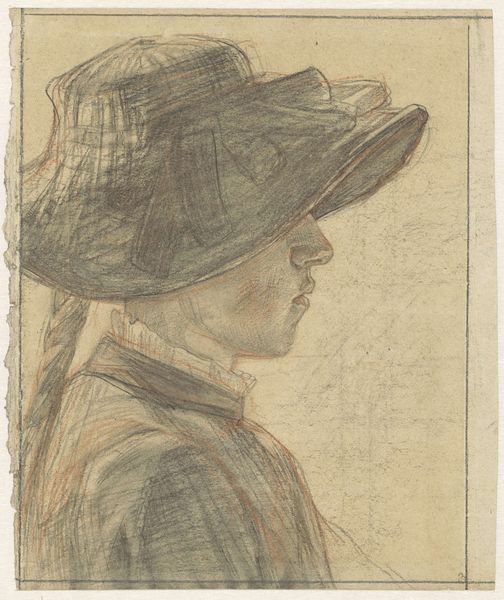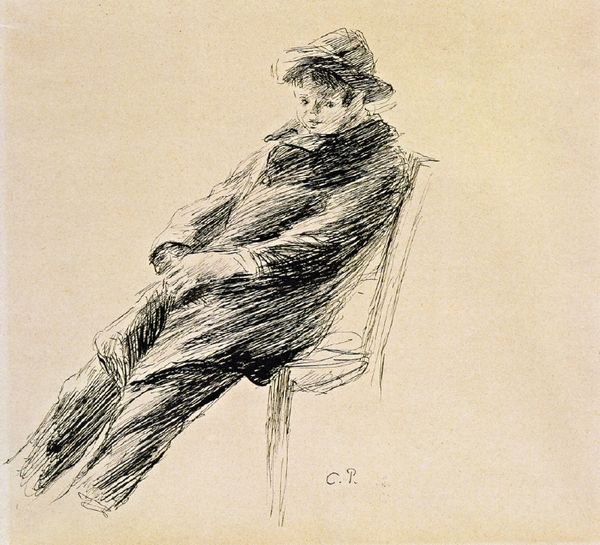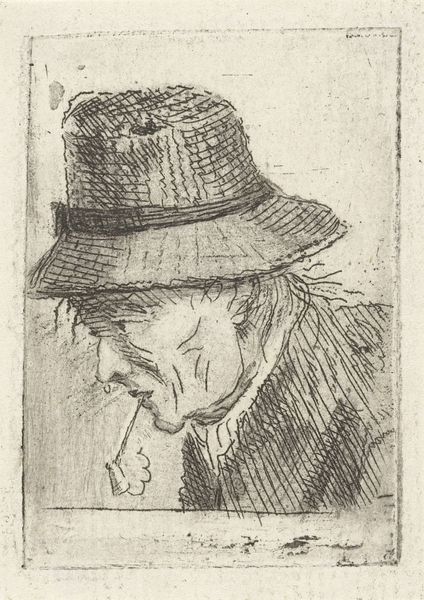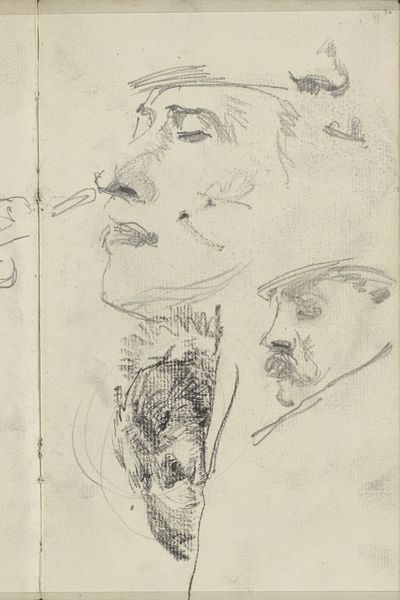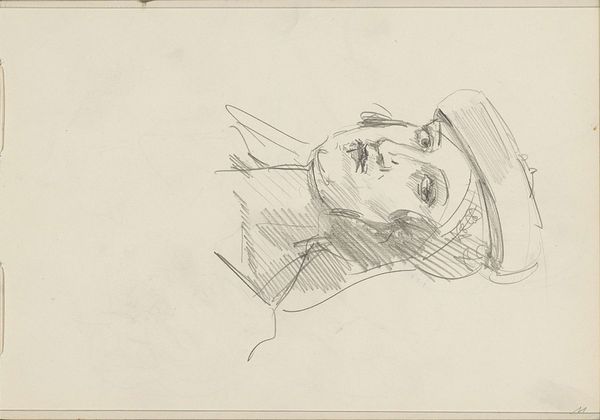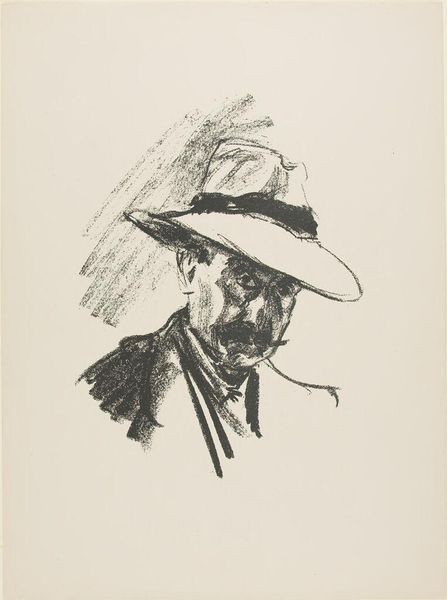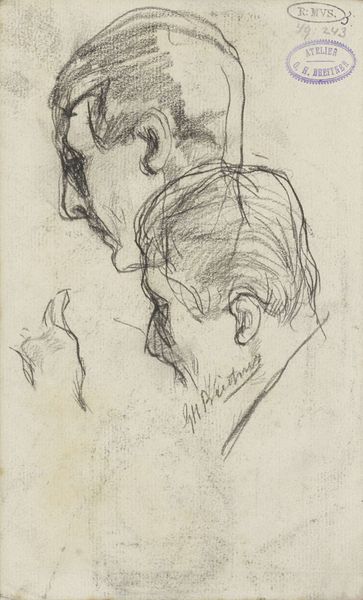
drawing, print, ink
#
portrait
#
drawing
# print
#
pencil sketch
#
german-expressionism
#
ink
#
expressionism
#
portrait drawing
#
monochrome
Dimensions: plate: 25 x 20 cm (9 13/16 x 7 7/8 in.) sheet: 50.5 x 32 cm (19 7/8 x 12 5/8 in.)
Copyright: National Gallery of Art: CC0 1.0
Max Beckmann created this etching titled 'Weeping Woman' using drypoint in 1914. The first impression is the sheer intensity of the lines that delineate the figures. These are not gentle curves but sharp, agitated strokes, that dig into the surface, creating deep shadows and a palpable sense of unrest. Look at how the lines coalesce to form the woman’s face. The eyes are downcast, and the mouth is downturned. The lines seem to embody the very act of weeping, etched permanently into the metal. Beckmann's use of drypoint allowed for a directness of expression, mirroring the raw emotionality he sought to convey. It seems he wanted to challenge conventional notions of beauty, offering instead a brutal portrayal of human suffering. This work reflects a post-structuralist idea of questioning stable and coherent identities. The woman is not a unified subject but a fragmented collection of lines that challenge any fixed meaning. Consider how the formal aspects of the work underscore the artist’s philosophical approach to making art. The aesthetic isn't merely decorative; it’s a profound engagement with existential themes.
Comments
No comments
Be the first to comment and join the conversation on the ultimate creative platform.
